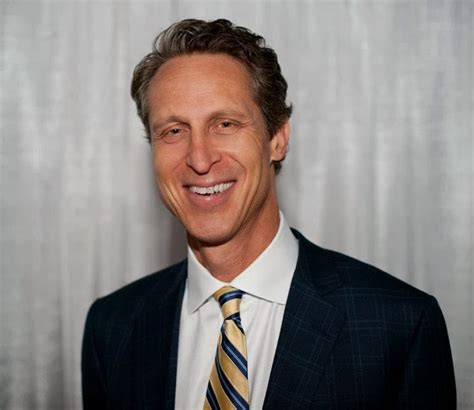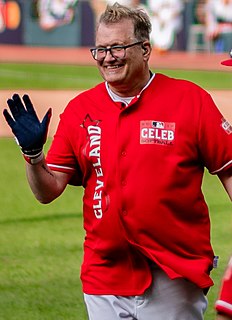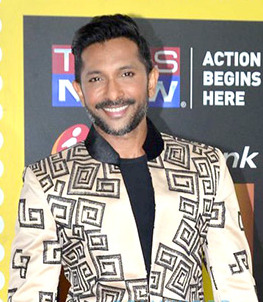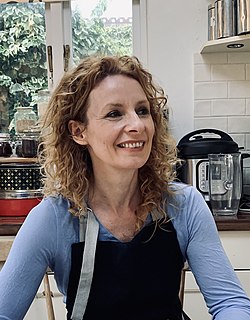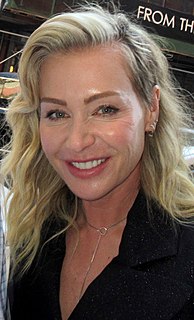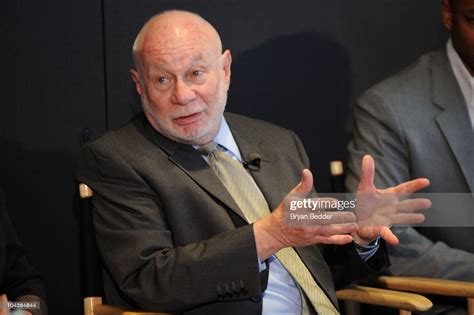A Quote by Mark Hyman
The very fact that we are having a national conversation about what we should eat, that we are struggling with the question about what the best diet is, is symptomatic of how far we have strayed from the natural conditions that gave rise to our species, from the simple act of eating real, whole, fresh food.
Related Quotes
I'm an actor that loves to eat on camera. I love it. Something about the act of eating means that you actually can't act as much. You have to be involved in the very real task of trying to ingest sustenance without choking and dying. Something about that process takes the heat off trying to act and often feels more natural.
The food we eat masks so much cruelty. The fact that we can sit down and eat a piece of chicken without thinking about the horrendous conditions under which chickens are industrially bred in this country is a sign of the dangers of capitalism, how capitalism has colonized our minds. The fact that we look no further than the commodity itself, the fact that we refuse to understand the relationships that underly the commodities that we use on a daily basis. And so food is like that.
Those of us who think about what we eat, how it's grown, those of us who care about the environmental impact of food - we've been educated by fabulous books, like Fast Food Nation and documentaries like Food Inc. But despite these and other great projects that shine a critical light on the topic, every year the food industry spends literally tens of millions of dollars to shape the public conversation about our food system.
I finally understood that by being on a perpetual diet, I had practiced a "disordered" form of eating my whole life. I restricted when I was hungry and in need of nutrition and binged when I was so grotesquely full I couldn't be comfortable in any position by lying down. Diets that tell people what to eat or when to eat are the practices inbetween. And dieting, I discovered, was another form of disordered eating, just as anorexia and bulimia similarly disrupt the natural order of eating.
A real naturalistic approach, I would claim, should take the reality of mental representation as a natural fact. A lot can be said about this fact, but there is no need to say it all in terms of necessary and/or sufficient conditions which are stated in non-intentional terms. The idea that naturalism might require that all the truths should be stated in a particular kind of vocabulary now strikes me as a very peculiar one.
I think America's food culture is embedded in fast-food culture. And the real question that we have is: How are we going to teach slow-food values in a fast-food world? Of course, it's very, very difficult to do, especially when children have grown up eating fast food and the values that go with that.
I think Americas food culture is embedded in fast-food culture. And the real question that we have is: How are we going to teach slow-food values in a fast-food world? Of course, its very, very difficult to do, especially when children have grown up eating fast food and the values that go with that.
Food historian Jessica B. Harris says African American cuisine is simply what black people ate. When I think about what my family ate, we ate what people think of as soul food on special occasions, on holidays, but our typical diet was leafy greens and nutrients and tubers - food that was as fresh as being harvested right before our meal. Whatever was in season, that's what we were eating. It was being harvested right from our backyard.
Our ancestors were eating meat over 2.5 million years ago. We mainly ate meat, fish, fruits, vegetables and nuts. We have to assume our physiology evolved in association with this diet. The balanced diet for our species was what we could acquire then, not what the government and doctors tell us to eat now.
That eating should be foremost about bodily health is a relatively new and, I think, destructive idea-destructive not just the pleasure of eating, which would be bad enough, but paradoxically of our health as well. Indeed, no people on earth worry more about the health consequences of their food choices than we Americans-and no people suffer from as many diet-related problems. We are becoming a nation of orthorexics: people with an unhealthy obsession with healthy eating.
